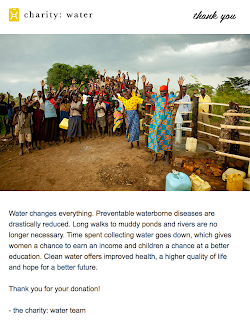As I sat in my 7th meeting of the day last week,
I began to drift away, far, far, away. Then on Friday, my trip to Houston was cancelled due to
snow and ice and I had an entire day without a single meeting, it was magical,
like finding a $20 bill in my coat pocket!
I have a secret, okay, its not a well kept secret, but here
goes. I HATE meetings. Abhor them, can’t stand them, yet I spend many of my
days in them. And I know you do too. We have a disease in Nonprofits about
meetings: We have meetings about meetings; we have committees about committees.
And you know what? Sometimes we’re really unproductive. Does your organization
have meetingitis? How can you help solve the problem? Don’t get me wrong, I’m
far from antisocial, I believe in the value of a GOOD meeting every now and
then, but if you want to punish me, make me attend a meeting where I already
know the conclusion because its predetermined and nothing is going to change as
a result. I want to pull my eyelashes out!
Here are a few reasons why I thing we fall prey to
meetingitis and what we can do about it. I have spent so much time in meetings,
I feel guilty taking a break to use the restroom, all the while believing that
most of the time, I am wasting my time, or it could better be used elsewhere.
- Stop accepting one hour meetings as the norm, move them to thirty minute meetings, keep them short and focused.
- Always have an agenda with a list of points necessary to cover and stick to it, my friend Mary Solomons is the queen of keeping us on task and focused and I love it!
- One of my clients calls a meeting where the cabinet is, or high level executives “an expensive meeting”. He’s right. How do we reduce the time or necessity of gathering all of the leaders together?
- Can this be accomplished via email or a short phone call? If so, schedule it! People tend to be less social then and more focused on the decision/task at hand.
- Meetings should always end with a summary of action items and a conclusion to move forward.
- Avoid distractions, cell phones, etc during meetings and have everyone hyper focused on the task at hand, a half hour away from email is a great thing. Place all "devices" in the center of the table, the first one who touches it, has to buy lunch or a round of drinks!
- It may be time to push back, while we all want a seat at the table, especially if there is free gummy worms, we may not need to always be there. The higher up in the organization you go, the more meetings you will be asked to attend- consider these questions-
o
What is the purpose of the meeting?
o
Is it related to my overall goals?
o
What do you expect from me?
o
How long will it last?
o
For which
part of the agenda will you need my input?
o
I may need to leave after my contribution. What
time will you be dealing with the topics related to me?
o
Do I
really need to be there?
o
If you
need input from our department, can someone else attend instead of me?
o
Are decisions likely to be made that only I can
make, or can I delegate or sidestep?
- There are few more thrilling opportunities for a junior teammate than being asked to come to a meeting of higher ups. Why not delegate and have someone serve as your representative. Go with them the first two times then quietly disappear and leave them to represent you and your team. It will be a growth point for them, you, and your organization.
- Keep your meetings small and focused. When you see a meeting request with 8-12 people on it, it usually means that the organizer didn’t know who they should be talking to.
What are you thoughts? How do you avoid
meetingitis? I welcome your thoughts and perspectives.
Cheers,
Lynne













